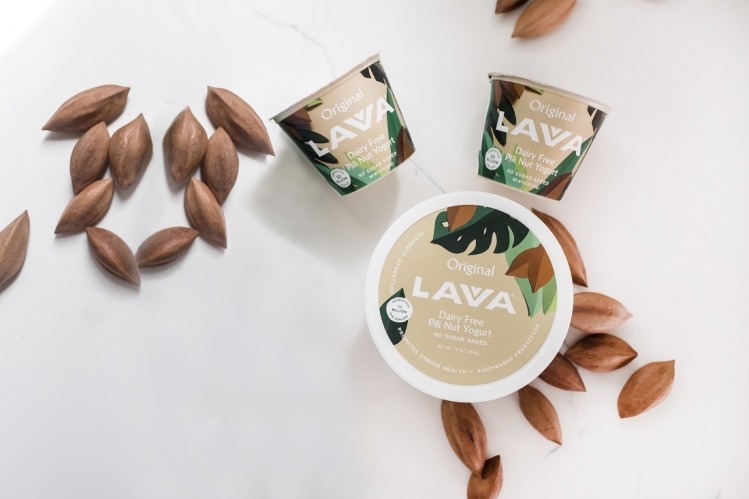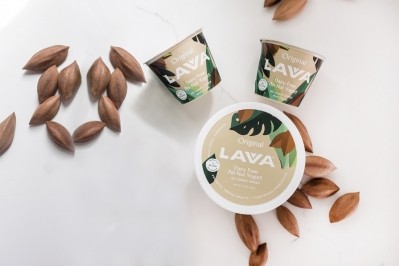Lavva CEO and founder talk mainstream potential of plant-based yogurt: 'The growth is very analogous to Greek yogurt'

Among the fast-growing categories of the broader plant-based food and beverage segment growing at a rate of +9% (2021 vs. 2020), plant-based yogurt is still a small piece of the market generating $377m in sales in 2021 (a fraction of the $2.6bn plant-based milk category), according to data from the Plant Based Foods Association and the Good Food Institute.
But, plant-based yogurt is growing faster than other categories such as plant-based milk (up +4% in 2021 vs. 2020), ice cream (+3%), and cheese (+7%).
Plant-based yogurt is also outpacing conventional yogurt, which grew at a rate of +3% year-over-year (2021 vs. 2020).
Speaking to FoodNavigator-USA following the acquisition of Lavva by venture firm Next In Natural, Lichtenstein -- who helped launch and scale companies including Chobani, Fage, and Stumptown in his career -- said, “To me, the growth is very analogous to Greek yogurt, cold pressed juice, and cold brew coffee in the United States. For all of those categories, the consumers had to overcome a bit of learning curve.”
According to Lichtenstein, plant-based yogurt has yet to hit its stride in both the natural and conventional channels but that is changing with emerging brands such as Lavva which both he and Fisher claim tastes closest to dairy yogurt in mouthfeel, texture, and replicates the characteristic tanginess and slightly acidic nature of yogurt.
Taste is the primary purchase driver
Lichtenstein, who has tried many plant-based yogurts throughout his career, described being blown away by the taste and eating experience of Lavva when he first crossed paths with Fisher while working at UNFI.
“The first foray into plant-based by us had its challenges but when we tried Liz’s product we said, “This is it.’,” Lichtenstein recounted.
Much of its sensory profile has to do with its star ingredient, the pili nut, a nutrient-dense tropical nut that due to its high fat content creates a buttery, creamy texture when combined with coconut in the final product formulation.
“It’s a crossway between Greek and standard yogurt. We’re told by our consumers that it’s the closest to yogurt in terms of mouthfeel,” Fisher told FoodNavigator-USA, who said that taste is far and away the primary purchase driver and helping to bring more people to the category.
“Consumers are buying Lavva first and foremost for the taste. The taste is clean, unprocessed with zero shortcuts or processing tricks,” said Fisher, who noted the rise – and subsequent consumer avoidance – of highly-processed plant-based foods.
Nutrition: What matters most to consumers?
Nutritionally, pili nuts are a rich source of essential nutrients such as magnesium which aids in nerve and muscle function and monounsaturated fats that may help reduce LDL (aka ‘bad’) cholesterol levels while being a ultra-low in carbs at 1g per 1-ounce serving making the nut a favorite among the keto and paleo crowd.
Beyond taste, Lavva products contain 0g of added sugar and 50 billion probiotic CFUs (colony forming units) per serving.
Asked about protein content, which is noticeably lower than dairy yogurt at 2g per 5.3-ounce cup, Fisher said that in deep dive research and conversations with consumers she learned that protein was less of a concern for most of its audience and that the draw of no added sugar and gut health benefits outweighed protein demands.
“We have such easy access to protein already,” said Fisher, noting that trying to hold plant-based yogurts to the same nutritional bar (in regards to protein specifically) as dairy yogurt is a meaningless battle when the product has other health credentials to highlight.
Diversifying plant-based yogurt audience
So who is buying and eating plant-based yogurt regularly? According to Fisher, the primary audience is consumers who are passionate about health and wellness especially abiding by the practice of food as a form of preventive medicine.
“It really is a passionate consumer who tends to not even shop in the center store – they are fresh, they are informed, and they know what they like,” she said.
However, as the company expands under recent new ownership with venture firm Next In General, the brand is aiming to push into more diverse retail accounts and broaden its retail footprint. The brand is currently available at select Whole Foods stores nationwide as well multiple other specialty, independent stores.
“We have a very strong following, particularly in New York and L.A., but we do want to work with pioneer retailers in other parts of the country as part of the strategy in the next year or so,” said Lichtenstein, who commented that in addition to its yogurt will be adding further products to its portfolio in the next 1-2 years.
"The innovation pipeline is something I’m very excited about, we’re going to be coming out with some pretty amazing things in early 2023," he added.
















